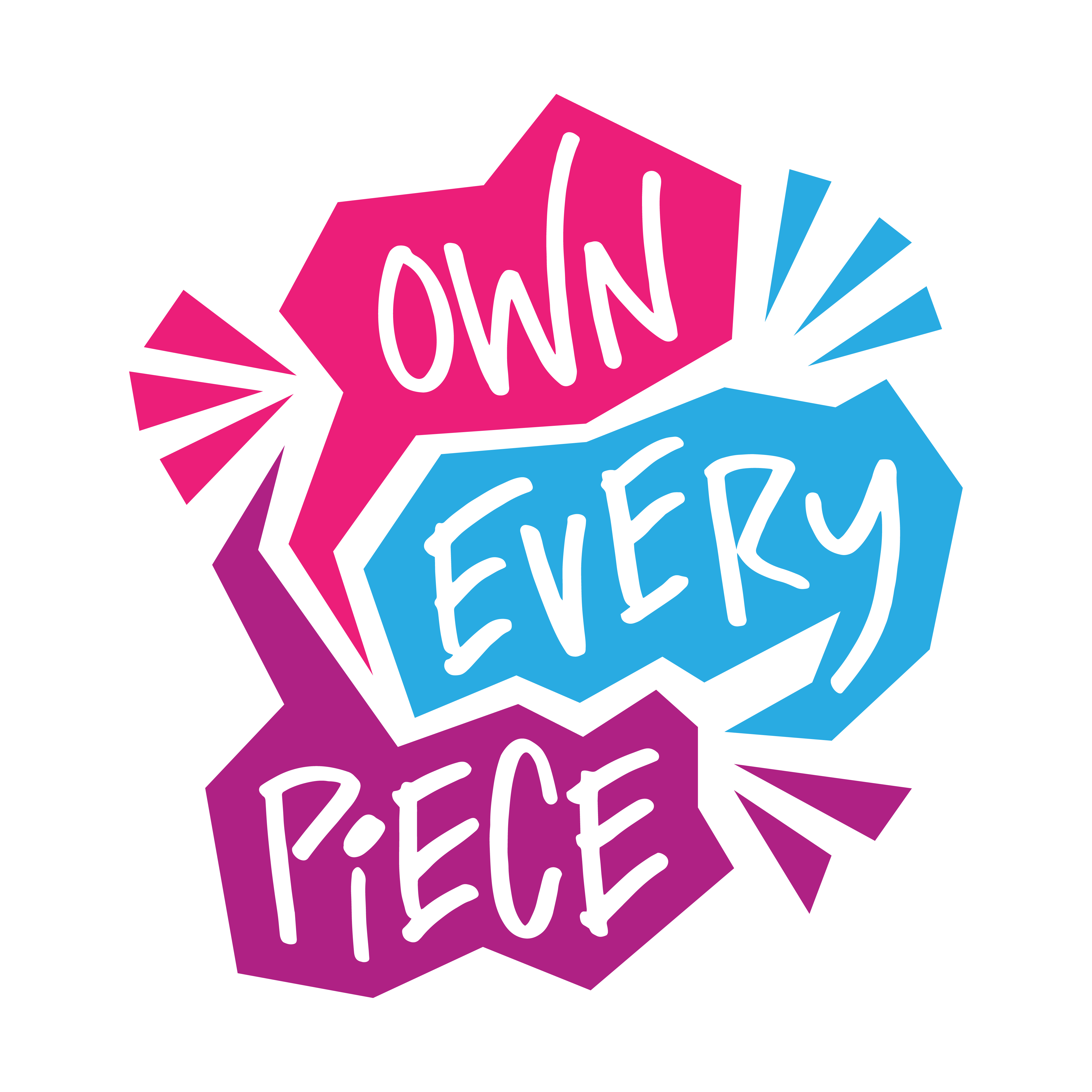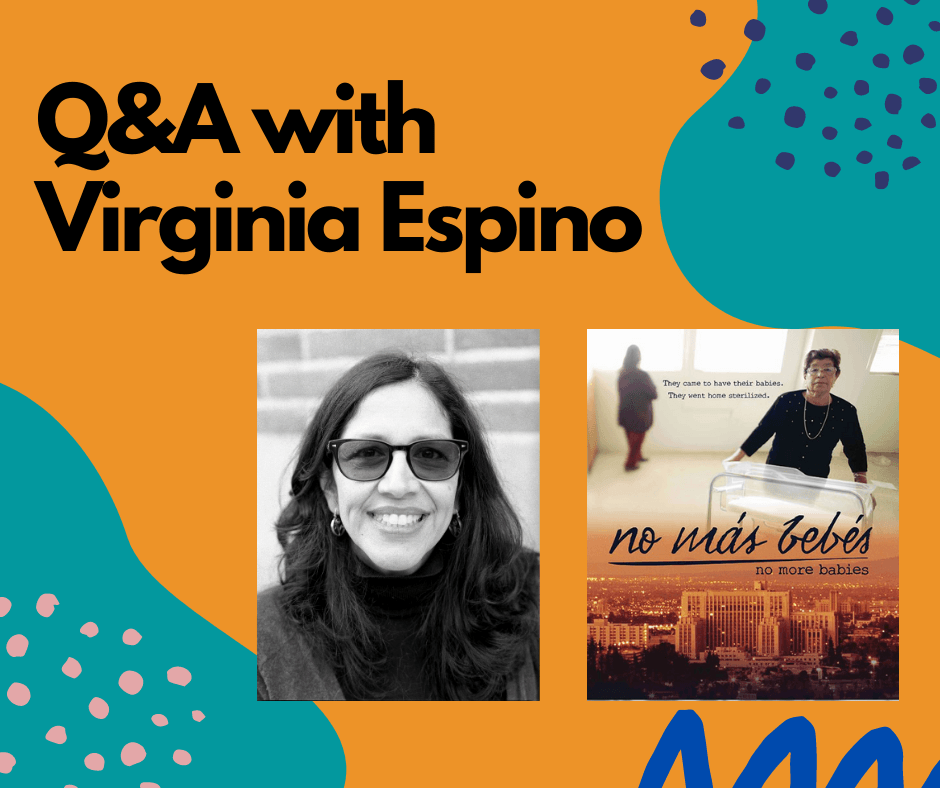Virginia Espino is a native daughter of California, born and raised in northeastern Los Angeles. She is an oral and public historian whose research focuses on health activism, motherhood and the uses of public space. She earned her PhD from Arizona State University writing about population control politics and reproductive injustice during the 1970s. Her research has been published in the Chicano Studies Journal, Aztlan and her investigation into the history of coercive sterilization at the Los Angeles-USC Medical Center provided the impetus for the documentary film, No Más Bebés, for which she is a Producer and Lead Historian. As a series leader for Latina and Latino History at UCLA’s Center for Oral History Research she developed oral history series that document the California Latina/o community and helped the Center build a valuable archive for scholars and the public at large.
Virginia Espino sat down with Own Every Piece to discuss No Mas Bebés and the most recent reports of reproductive injustice in this country.
Q: How did you figure out the right method of storytelling for this film? Was there a process you followed or referred to other films?
A: The film came about because of my relationship with the director Renee Tajima Peña. She has a wonderful body of work. She’s an Oscar-nominated filmmaker so she brought that skill of storytelling to the project. I just know from my own experience as a historian as someone who wants to center the experience of women and especially the experience of the survivors of the sterilization, I knew I wanted to approach the story from that perspective. I wanted to make sure that their voices were the centerpiece. It’s a story that has a whistleblower who actually risked everything his career etc. to expose these abuses. We had to make a choice if we were going to center the story around this Jewish man or were we going to center it around the survivors or the plaintiff. I call them the “Madrigal 10.” But we definitely didn’t want to center the story around him although he deserves his own story. He definitely deserves acknowledgment and recognition for being a whistleblower but quite often we learn about these histories through the lens of white men. And we wanted to make sure that we didn’t replicate that.
Q: Did you face any challenges trying to get women to open up about their story?
A: Yes, it was very difficult. When I was writing my dissertation, I did not interview the women but there was plenty of documentation they had given depositions. And those depositions were donated to UCLA Chicano Studies Research Center so there were also news articles written about the case. Both lawyers, Antonia Hernandez and Georgina Torres Rizk wrote articles about the lawsuit but when you’re making a documentary film, you actually have to have the person speak on their own behalf if they’re alive and if they are willing and able to talk about their experience. It was just a very difficult process of tracking everyone down because they didn’t necessarily have a paper trail where you could find them on the internet and reach out to them so we had to track them down like you would track down a family member through genealogical means like going to the courthouse and looking for birth records. That was one of the ways we were able to track down some of the women and then there were some who just didn’t want to share their story. There was one we went to go visit I remember very well and she said that it was too traumatic for her and she didn’t want to relive that trauma and that actually our presence was reminding her of what had happened. She just wanted to forget about it. And then there were others like Maria Carolina Hurtado who was very much open and welcoming. She fed us she invited us into her home, she introduced us to all of her family and she gave us a very different kind of welcoming and so I think that we have to look at each of the 10 individuals as unique entities as the way that they experience the trauma and the way that they process the trauma and then the way they responded to the making of the documentary film.
Q: What are your thoughts on the whistleblower experience? What can we learn from figures like Dawn Wooten and Dr. Rosenfeld as a way to speak up about injustices in our own communities?
A: I think it’s really important that people stand up and call abuses out when they see them. My daughter when she was in middle school, they would educate them about what it means to be an upstander. Standing up for people who can’t really speak for themselves or when you witness something taking place that you think is wrong stand up for that person. I think we all should be upstanders when we witness abuse. I really applaud people like Dr. Rosenfeld and Dawn Wooten for standing up and risking their job, risking their reputation, putting themselves in a position to have hate directed towards them. There was a lot of hate directed towards Dr. Rosenfeld, he actually had to leave California and start fresh with his practice so that takes a lot of courage. I think we need to educate people about what it means to be a whistleblower. That’s not a term that most people are familiar with so I think that there have been a lot of important whistleblowers in history that have changed the face of civil rights conversations and have protected the civil rights of individuals. I think we need to bring them into this discussion of civil rights and it really needs to be part of that history that we’re taught. We’re taught about leaders like Martin Luther King and Cesar Chavez and we also need to be talking about these whistleblowers.
Q: What should agencies and institutions do to make sure this does not happen again. What can they do to support people to advocate for justice?
A: That’s a really big question. I can offer five policies but that doesn’t mean they’re going to hear what I have to say or even agree with what I have to say. There’s a new documentary titled “In the Belly of the Beast” and it follows a woman who was sterilized in a California prison in the 2000s and there was a ban on elective sterilization. There was a policy in place but they ignored that policy and they sterilized this person anyway so that conversation about policy is really tricky. Even though you might have laws and protected legislation that doesn’t mean people are going to respect it. You really need to have oversight and people need to be punished. So far, I haven’t heard of any congressional investigation taking place. There were charges brought against the doctors at the LA County Hospital but as you know, they were not implicated in what or found guilty for having sterilized these women against their full knowledge and understanding of what was taking place. There needs to be a system set in place that is going to bring justice to the survivors but also implicate the perpetrators just like what we see with the police beatings and the police killings. There’s no system set in place that is going to really fully and investigate those murders and so people are getting away with murder which means they have impunity and if they have impunity they’re going to continue to kill Black people.
Q: What main call to action do you want viewers to take from watching this film, especially right now?
A: I’d like people to get involved with their local reproductive justice organizations. I’m on the Board of the California Latinas for Reproductive Justice here in California. but there are many different organizations that people can participate in. I’m a strong advocate of Planned Parenthood and the work that they do however I have lots of friends who work for them but I think that the budgets are much tighter for those smaller reproductive justice organizations. There’s SisterSong, Stronger Families, The National Latina Institute for Reproductive Justice there’s COLOR (Colorado Organization for Latina Opportunity and Reproductive Rights). Get involved in your local reproductive justice organizations and stay informed with the policies that let your legislatures are trying to pass.
Virginia Espino has worked with the California Latinas for Reproductive Justice to help collect stories about reproductive justice. To learn more, click here.

